Blog
Can we eat makhana directly?

Nutritional Profile of Makhana
It is essential to determine the nutritive value of makhana before discussing whether it can be consumed directly. Makhana can be a wonderful addition to a healthy diet as its calorie density is very low and it is a great source of important nutrients. In these crunchy seeds you will find a lot of protein, carbs, fiber, vitamins, and minerals such as calcium, magnesium, potassium, and phosphorus. Moreover, makhana is not only gluten-free, cholesterol-free, but it is also low in fat, which makes it a favorite choice for those who are health-conscious.
Why eating makhana is good for you?
Some of the benefits includes:
- Good for You: Makhana is full of antioxidants, like flavonoids and saponins, which help fight oxidative stress and lower the risk of getting long-term illnesses like cancer and heart disease.
- Supports Digestive Health: Makhana’s high fiber content helps keep your digestive system normal and stops you from getting constipated. It also helps keep the bacteria in your gut healthy.
- Boosts Metabolism: Makhana has enzymes that speed up the metabolism, which helps people control their weight and lose fat.
- Improves Bone Health: The calcium and phosphorus in makhana help bones stay strong and dense, which lowers the risk of osteoporosis and injuries.
- Controls Blood Sugar: Makhana has a low glycemic index, which means it doesn’t make blood sugar levels rise. This makes it a good snack for people with diabetes.
Can we eat Makhana directly?
The question that is most often asked is whether makhana can be eaten just like that or it needs to be prepared first. Indeed, Makhanas can be consumed as such. Some nuts and seeds require cooking or roasting to improve their taste and make them easier to digest. Contrary to Bhel Puri, Makhana can be consumed with no added spices. This product is especially loved by kids and adults alike because it has a mild and sweet taste.
On the other hand, some people like to roast or make makhana to make it tastier and better in texture. The makhana can be made more delicious by adding spices like cumin, ginger, or pepper powder to it and cooking it without ghee. This way it will appeals more to people. And more, toasted makhana can be incorporated to different meals like salads, stews or trail mix to not only to make them healthier but also to make them crunchier.
When it’s best to eat makhana?
Mahayana can be eaten at any time of the day, but there are times when it might be better to drink it:
- As a Snack in the Middle of the Morning or Afternoon: Makhana is a very nutritious and low-calorie option for a quick bite between breakfast and lunch. It provides you with a long lasting energy level and it makes you feel full between meals because it contains both protein and fiber.
- Pre-Workout Snack: Since the carbs are high, Makhana is an excellent snack to consume prior to your workout session as it will give you energy within a short period of time. Adding it to protein-rich foods, for example, yogurt or cheese, can give it even more power to heal and strengthen the muscles.
- Evening Snack: Having makhana as an evening snack can help avoid eating too much at dinner and stop seeking for unhealthy foods. It is a good alternative for high-calorie snacks like chips or cookies because it is light in weight but filling.
Is it okay to eat makhana at night?
Health nuts often disagree on the subject of eating snacks before bed, especially ones that are thought to be healthy, like makhana. But adding makhana to your dinner routine can have a number of advantages:
- Helps You Sleep: Makhana has a lot of tryptophan, an amino acid that helps make serotonin and melatonin, which are chemicals that control your mood and sleep-wake cycles. If you eat makhana before bed, it might help you relax and sleep better.
- Stops Midnight Cravings: Eating makhana as a snack before bed can help stop late-night hunger pangs, keeping you from grabbing for bad snacks that could keep you up at night and ruin your diet plans.
- Helps fix Muscles: The protein in Makhana can help your muscles fix and recover overnight, especially if you worked out during the day. Adding a protein-rich food, like a glass of milk or a handful of nuts, to makhana can make it work better at growing muscle.
How Much Makhana Should You Eat Each Day?
Makhana is a healthy food, but you should only eat it in small amounts so you don’t overdo it. The right amount of makhana to eat may change for each person based on their age, gender, level of exercise, and total food intake. In general, though, it’s thought to be okay to eat 30 to 50 grams (about 1 to 2 ounces) of makhana every day.
It’s important to watch your portions and not snack mindlessly, especially if you want to lose weight. Also, makhana should be a part of a varied diet with lots of different fruits, veggies, whole grains, lean meats, and healthy fats to make sure you get enough nutrition and are healthy overall.
Conclusion
In conclusion, makhana is a healthy snack that can be eaten on its own or added to other foods to make them taste better and be healthier. Because it is high in antioxidants, helps the digestive system, speeds up the metabolism, and builds strong bones, it is a great food to include in your diet.
Makhana is a healthy snack that can be eaten as a mid-morning snack, before a workout, as a treat in the evening, or as a snack before bed. It is versatile and easy to use. If you know when to eat makhana, how much to eat, and whether it’s okay to eat at night, you can use its nutritional power to help you reach your health and fitness goals. Please feel free to grab a bunch of makhana and enjoy its crunchy goodness!
Here are 10 frequently asked questions about eating makhana directly:
1. Is it safe to eat raw makhana?
Yes, it is safe to eat raw makhana but it is recommended to roast or fry them before consumption for better taste and digestion.
2. Can I eat makhana directly from the packet?
Yes, you can eat makhana directly from the packet. However, it is suggested to check the expiry date and packaging before consuming.
3. Are there any health benefits of eating raw makhana?
Yes, there are several health benefits of eating raw makhana, such as it helps in weight loss, improves digestion, and is an excellent source of protein and calcium.
4. What is the best way to eat makhana?
The best way to eat makhana is to roast or fry them and add some spices or flavors of your choice.
5. How to store makhana?
Makhana can be stored in an airtight container in a cool and dry place. Make sure to close the lid tightly after every use to avoid moisture.
6. Can I eat makhana during pregnancy?
Yes, pregnant women can eat makhana as it is an excellent source of protein and minerals that are essential for the health of both mother and baby.
7. Is it okay to eat makhana daily?
Yes, it is absolutely fine to eat makhana daily, as it contains essential nutrients that are required for a healthy body.
8. Does eating makhana lead to weight gain?
No, eating makhana does not lead to weight gain as it is a low-calorie snack that is also high in protein and fiber.
9. Can makhana make you feel bloated?
No, makhana is not known to cause bloating. However, if you overeat or have a sensitive digestive system, it is possible to experience some discomfort.
10. Can diabetics eat makhana?
Yes, diabetics can eat makhana, as it is a low glycemic index food that does not cause a spike in blood sugar levels. However, it is always best to consult a doctor or nutritionist before making any major dietary changes.



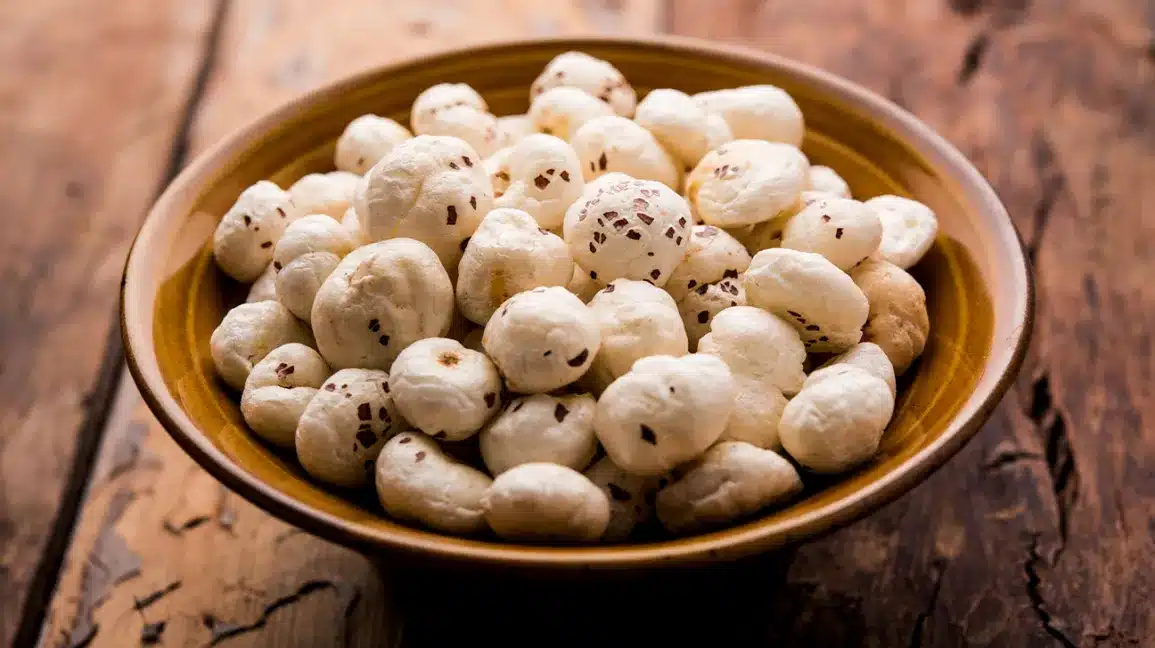
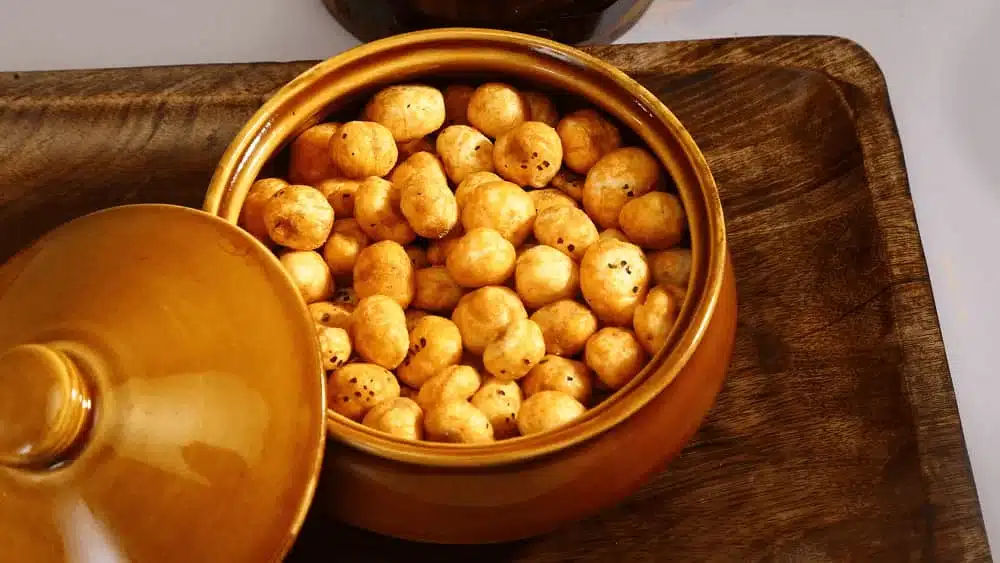
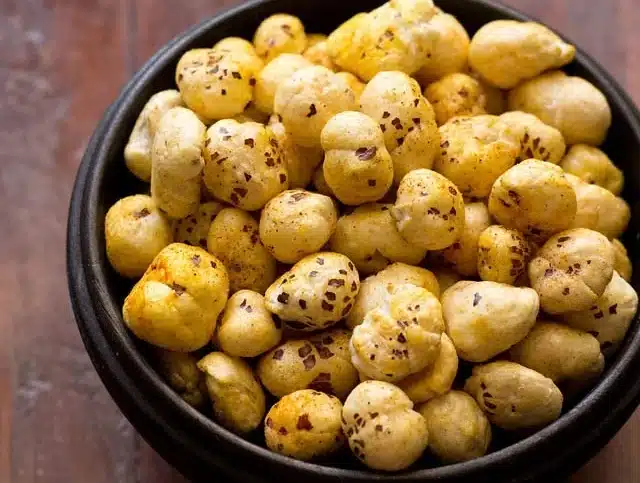


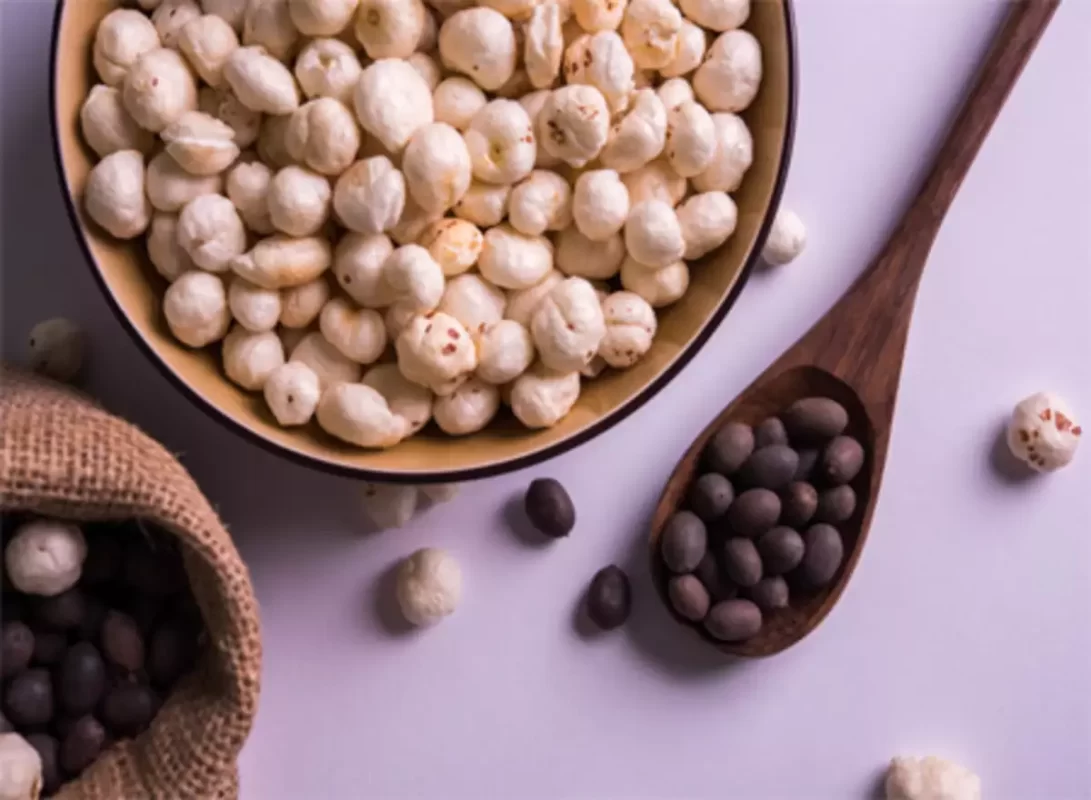
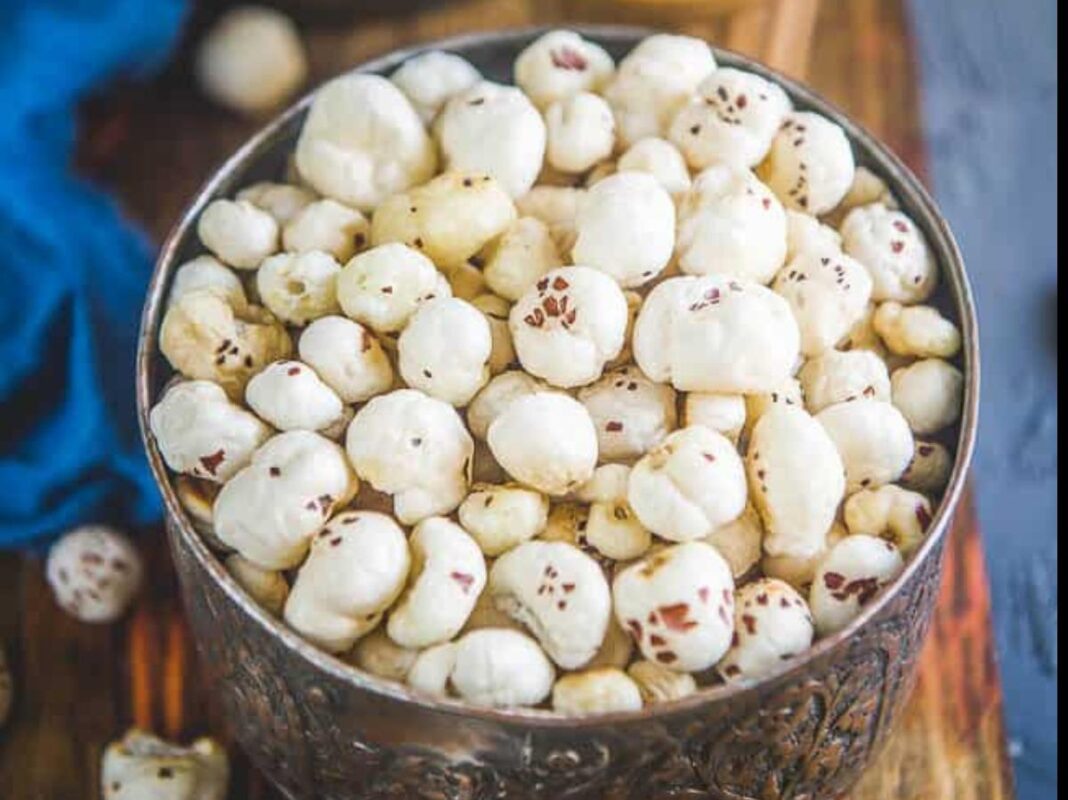
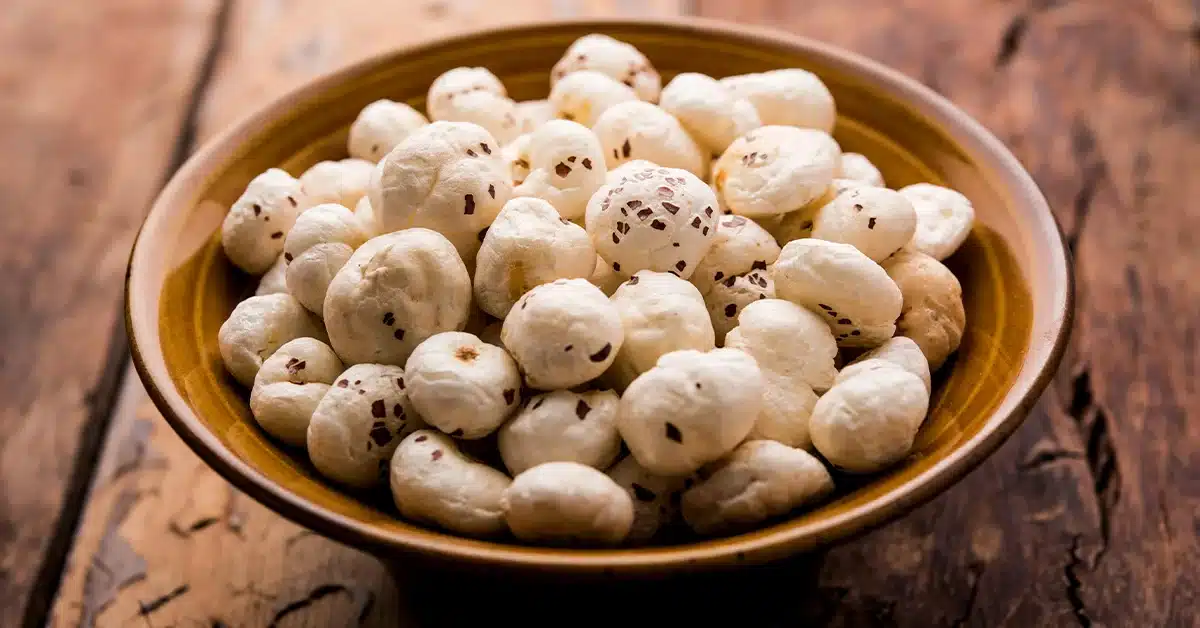

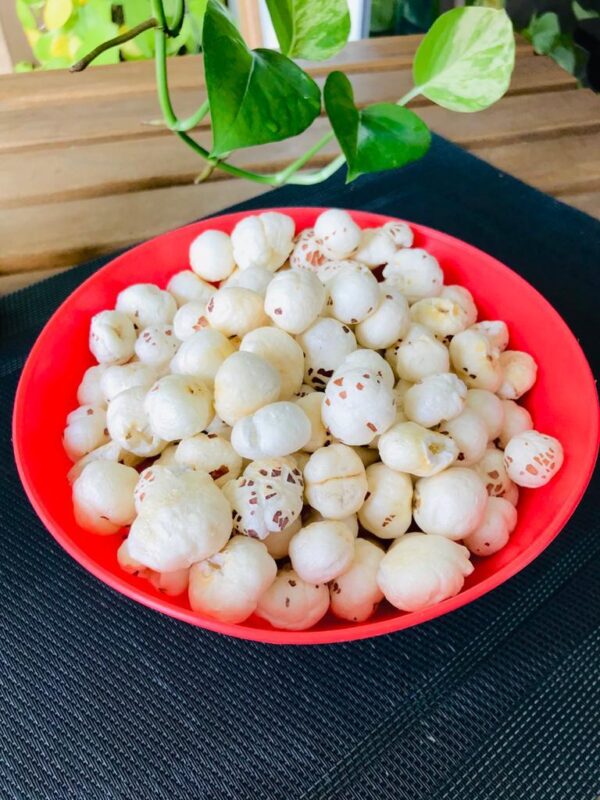
One thought on “Can we eat makhana directly?”